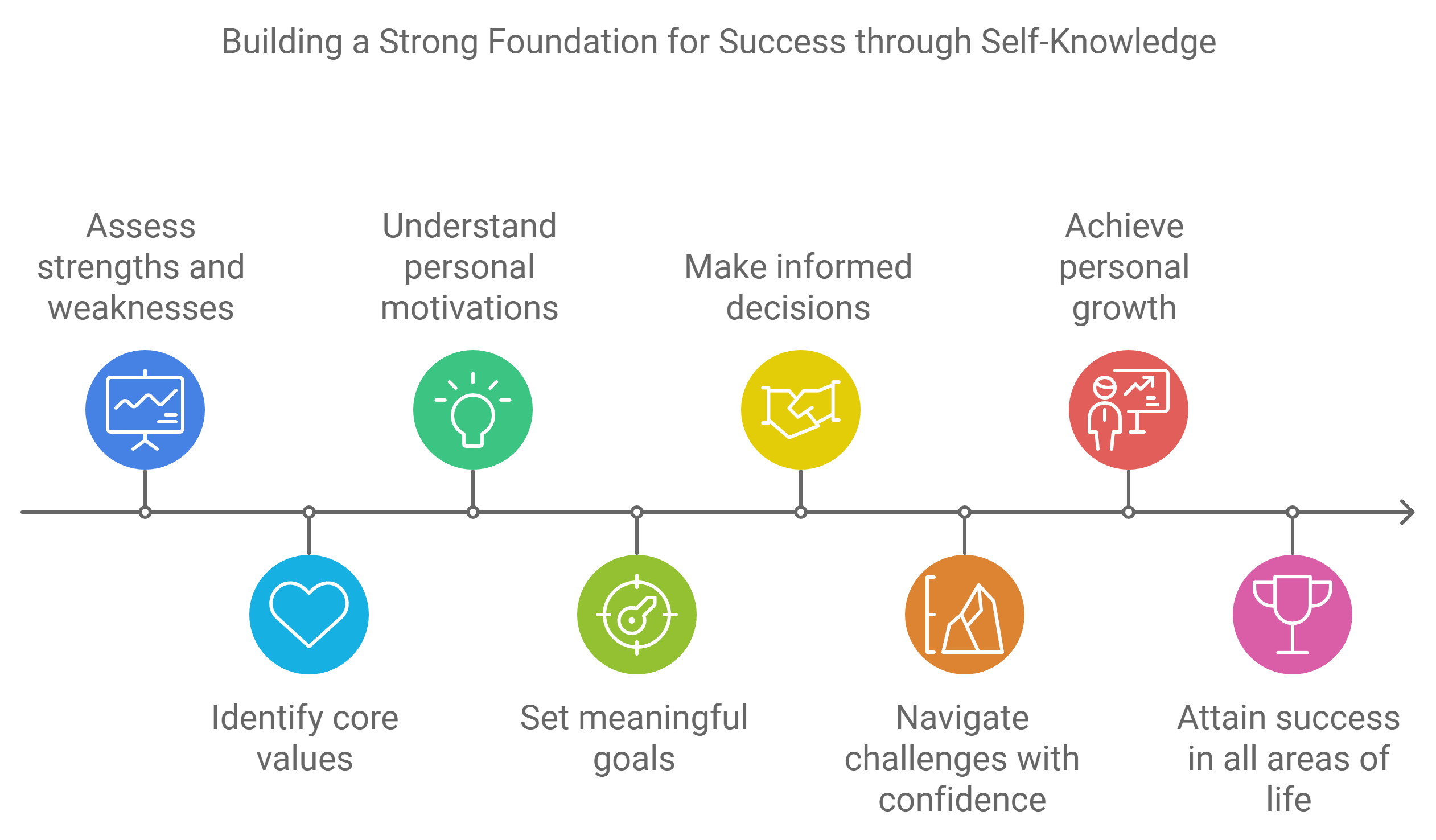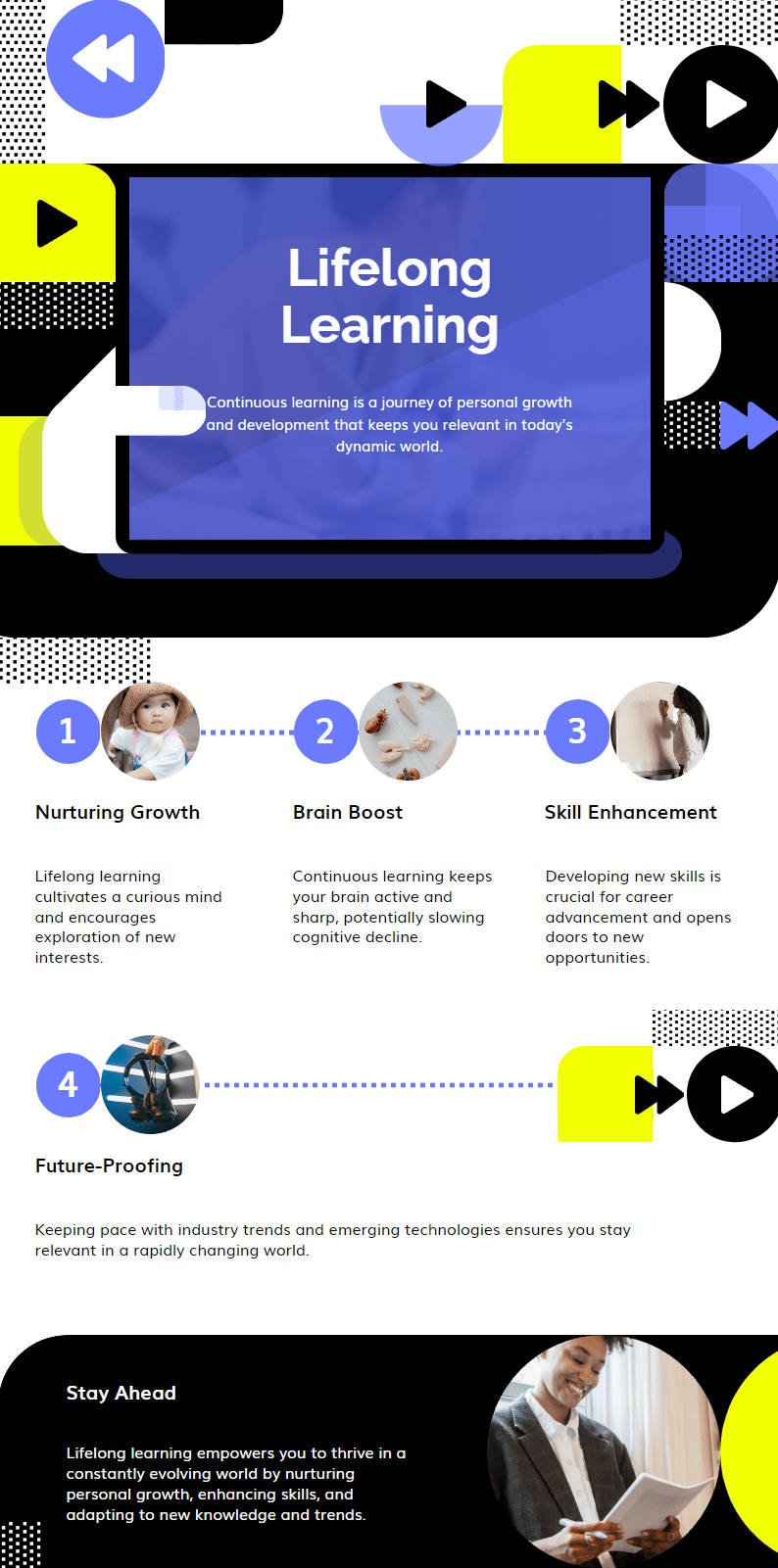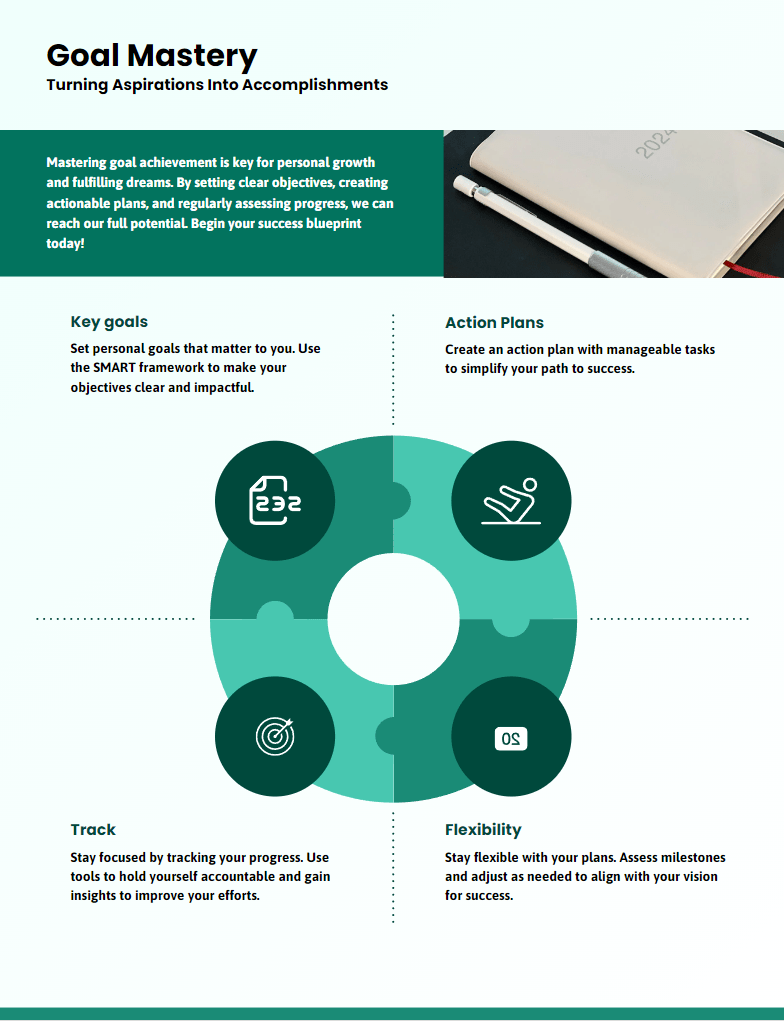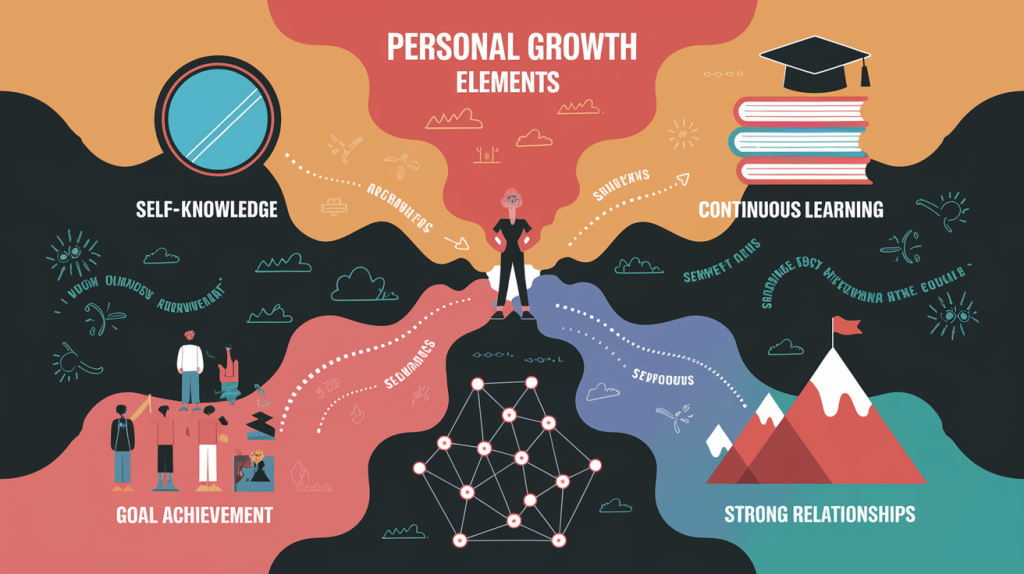In today’s fast-paced world, we often find ourselves caught up in the daily grind, forgetting the importance of personal development. Yet, this crucial aspect of our lives has a profound impact on our success, both professionally and personally. Personal growth isn’t just a buzzword; it’s the foundation upon which we build our achievements, relationships, and overall satisfaction in life. We’ve come to realize that investing in ourselves is not a luxury, but a necessity to thrive in an ever-changing environment.
As we dive into this topic, we’ll explore several key areas that contribute to personal development and its role in achieving success. We’ll look at how self-knowledge forms the bedrock of our growth journey, and why continuous learning is vital to stay ahead. We’ll also discuss the art of setting and achieving goals, as well as the significance of building strong relationships and networks. By the end of this article, we hope to inspire you to take charge of your personal growth and unlock your full potential.
The Foundation of Success: Self-Knowledge
I’ve come to realize that self-knowledge is the cornerstone of personal development and achieving success. It’s about understanding who we are at our core, including our strengths, weaknesses, values, and motivations. This deep self-awareness allows us to make better decisions, set meaningful goals, and navigate life’s challenges with greater confidence.
Assessing strengths and weaknesses
One of the first steps in gaining self-knowledge is to assess our strengths and weaknesses. I’ve found that this process requires honest self-reflection and feedback from others. By identifying our strengths, we can leverage them to achieve our goals more effectively. Similarly, recognizing our weaknesses allows us to work on improving them or find ways to compensate for them.
To assess my strengths and weaknesses, I often reflect on past experiences, both successes and failures. I also ask trusted friends, family members, and mentors for their honest opinions. Additionally, I’ve found personality assessments and aptitude tests to be helpful tools in gaining insights into my unique qualities.
Identifying core values
Our core values are the fundamental beliefs that guide our attitudes, behaviors, and decisions. I’ve learned that identifying and defining these values is crucial for living an authentic and purposeful life. When we align our actions with our core values, we experience greater fulfillment and satisfaction.
To identify my core values, I’ve engaged in various exercises, such as reflecting on meaningful moments in my life, considering what angers or inspires me, and thinking about the legacy I want to leave behind. I’ve also found it helpful to write out what each value means to me personally, creating a clear definition that I can easily remember and refer to when making important decisions.
Understanding personal motivations
Knowing what drives us is essential for setting and pursuing meaningful goals. I’ve discovered that motivation can be intrinsic (driven by internal factors like personal satisfaction) or extrinsic (influenced by external rewards or recognition). Understanding our personal motivations helps us choose career paths, relationships, and activities that align with our true selves.
To gain insight into my motivations, I often ask myself questions like: What energizes me? What gives me a sense of purpose? What am I willing to sacrifice for? By reflecting on these questions, I’ve been able to identify the factors that truly drive me, whether it’s achievement, affiliation, power, autonomy, or a sense of purpose.
Through this journey of self-knowledge, I’ve realized that it’s an ongoing process. As we grow and change, our understanding of ourselves may evolve. That’s why I make it a priority to regularly engage in self-reflection and seek feedback from others. By continually deepening our self-knowledge, we lay a strong foundation for personal growth, resilience, and ultimately, success in all areas of our lives.

Continuous Learning: A Key to Personal Growth
I’ve come to realize that continuous learning is essential for personal development and achieving success in today’s fast-paced world. It’s not just about formal education; it’s a mindset that embraces ongoing growth and improvement throughout our lives. By committing to lifelong learning, we open ourselves up to new opportunities and stay relevant in an ever-changing landscape.
Embracing lifelong learning
Lifelong learning is more than just acquiring knowledge; it’s about nurturing a curious mind and willingness to explore new areas of interest. I’ve found that adopting this approach has helped me stay adaptable and open to change. It’s about seeing every experience as a chance to learn and grow, whether it’s through reading, taking courses, or simply engaging in meaningful conversations with others.
One of the most significant benefits of lifelong learning is its impact on our brain health. Recent research has shown that continuous learning can help keep our brain cells working at optimum levels, potentially slowing cognitive and memory decline as we age 1. This alone is a compelling reason to make learning a priority in our lives.
Developing new skills
In today’s competitive job market, developing new skills is crucial for career advancement. I’ve noticed that employers are increasingly looking for candidates who demonstrate a commitment to ongoing learning and skill development. By actively seeking out opportunities to learn new skills, we can make ourselves more valuable in our current roles and open doors to new career possibilities.
One effective strategy I’ve used is breaking down new skills into smaller, manageable chunks. This approach makes the learning process less overwhelming and allows for steady progress. I’ve also found that using a variety of learning mediums, such as online courses, workshops, and hands-on practice, helps reinforce new knowledge and skills more effectively.
Staying relevant in a changing world
The world is evolving at an unprecedented pace, and staying relevant requires a proactive approach to learning. I’ve learned that it’s essential to keep an eye on industry trends and emerging technologies to anticipate future skill requirements. This foresight allows us to adapt and prepare for changes before they become critical.
One way I stay informed is by building relationships with others in my field and actively participating in professional networks. These connections provide valuable insights into new developments and help me identify areas where I need to focus my learning efforts.

Mastering the Art of Goal Achievement
I’ve learned that setting meaningful objectives is crucial for personal development and achieving success. By creating action plans and tracking progress, we can turn our aspirations into reality. Let’s explore some effective strategies for mastering the art of goal achievement.
Setting meaningful objectives
When it comes to setting goals, I’ve found that it’s essential to make them personally meaningful. This approach fuels our intrinsic motivation and supports our personal growth. To ensure our objectives are impactful, we can use the SMART framework. This method helps us break down big concepts into practical goals that connect to our larger vision 2.
The SMART criteria include:
- Specific: Clearly define what you want to accomplish.
- Measurable: Establish concrete criteria to track your progress.
- Attainable: Set realistic goals considering your resources and skills.
- Relevant: Align your objectives with your role and personal values.
- Time-bound: Set clear deadlines to maintain focus and avoid procrastination.
By applying this framework, we can create goals that are interesting, challenging, and personal, which increases our chances of success.
Creating action plans
Once we’ve set our objectives, the next step is to create a detailed action plan. This roadmap outlines the steps we need to take to achieve our goals. I’ve found that breaking down larger goals into smaller, manageable tasks makes the process less overwhelming and more achievable.
When creating an action plan, it’s helpful to:
- Identify specific tasks and results we want to accomplish.
- Set targets or standards for each task.
- Determine how we’ll measure our progress.
- Outline time frames for completing each step.
- Prioritize our goals based on their importance.
By following these steps, we can develop a clear path forward and increase our motivation to take action.
Tracking progress and adjusting course
Regularly monitoring our progress is crucial for staying on track and achieving our goals. I’ve discovered that tracking helps us remain accountable, identify areas for improvement, and make necessary adjustments along the way.
To effectively track progress, we can:
- Use a goal-tracking sheet or digital tool to monitor our achievements.
- Schedule regular check-ins to review our progress (weekly or monthly).
- Celebrate small wins to maintain motivation.
- Identify and address any obstacles or challenges we encounter.
- Adjust our action plan as needed based on our progress and changing circumstances.
By consistently tracking our progress, we gain valuable insights into what’s working and what needs improvement. This allows us to stay focused, make data-driven decisions, and ultimately increase our chances of success in our personal development journey.

Building Strong Relationships and Networks
I’ve come to realize that building strong relationships and networks is crucial for personal development and achieving success. It’s not just about collecting business cards or racking up social media connections; it’s about forging meaningful relationships that can transform our lives. Let’s explore some effective strategies for improving our interpersonal skills, networking, and cultivating mentorship relationships.
Improving interpersonal skills
To build strong relationships, we need to focus on enhancing our interpersonal skills. Good communication is the secret sauce for creating connections. I’ve learned that being a master communicator involves honing our active listening skills, maintaining eye contact, and using body language that shows we’re engaged. It’s also important to be mindful of our own communication style and adapt to others’ preferences.
One effective way to improve our interpersonal skills is through self-reflection. I spend some time each day thinking about my feelings, why I react to certain situations in specific ways, and how I can handle emotions more effectively. This practice has helped me become more self-aware and better equipped to navigate social interactions.
Networking strategies
When it comes to networking, I’ve found that setting clear goals is essential. Before attending any professional event, I ask myself what I’m looking to achieve through my networking efforts. Whether it’s finding a job, advancing in my current organization, or exploring new opportunities, having clear objectives guides my networking strategy.
One powerful networking strategy I’ve adopted is what I call “strategic generosity.” This approach involves offering help or value to others without immediately expecting anything in return. By genuinely contributing to someone else’s success or knowledge base, I’ve been able to build rapport and establish a reputation as a helpful and knowledgeable individual in my network.
Another effective strategy is to focus on learning. I approach networking with excitement, curiosity, and an open mind about all the possibilities that might unfold. This promotion-focused mindset has helped me see networking as an opportunity for discovery and growth rather than a chore.
Cultivating mentorship relationships
Mentorship has been a game-changer in my personal development journey. Having a mentor has accelerated my self-development, improved my confidence, and increased my chances of promotion. The benefits of mentorship extend to both parties involved, supporting inclusion initiatives and mental health.
To cultivate a mentorship relationship, I’ve found it helpful to identify common interests with potential mentors. When our networking is driven by substantive, shared interests, it feels more authentic and meaningful. This approach has led to longer-lasting connections and collaborative relationships.
As a mentee, I’ve learned to be proactive in seeking guidance and support. I regularly communicate with my mentor, keep them informed of my progress, and seek their feedback. This has not only helped me navigate challenges in the workplace but has also increased my visibility within the organization.
Building strong relationships and networks is an ongoing process that requires consistent effort and genuine interest in others. By focusing on improving our interpersonal skills, implementing effective networking strategies, and cultivating mentorship relationships, we can create a support network that propels our personal growth and career success.
Personal development is a journey that has a profound impact on our path to success. By diving into self-knowledge, embracing lifelong learning, mastering goal-setting, and building strong relationships, we lay the groundwork to unlock our full potential. This journey isn’t always smooth sailing, but the rewards of personal growth are well worth the effort.
In the end, personal development is about becoming the best version of ourselves. It’s a continuous process that shapes our character, boosts our skills, and opens doors to new opportunities. By making personal growth a priority, we’re not just working towards success – we’re creating a richer, more fulfilling life experience. So, let’s keep pushing ourselves to grow, learn, and connect with others on this exciting journey of self-improvement.

FAQs
How does personality development contribute to achieving success?
Personality development is crucial for success as it enhances your individual attitude and grooming, unleashing your capabilities and key strengths. It fosters a deeper self-understanding and boosts confidence, equipping you to effectively face challenges.
In what ways does self-development impact personal and professional success?
Engaging in self-development improves your morale, confidence, and knowledge, which not only betters your work-life balance but also enhances your career prospects. This could mean achieving a promotion, landing a new job, or making a career shift.
Why is personal growth vital for your career advancement?
Personal growth is essential for career success as it opens opportunities for advancement within your organization. It promotes a heightened sense of self-awareness and helps pinpoint areas for improvement, contributing to your overall professional development.
What are the benefits of engaging in personal development?
Personal development offers multiple transformative benefits. It significantly increases self-awareness, helping you to better understand your strengths, weaknesses, values, and passions. This crucial insight guides you in making informed decisions and pursuing paths that align with your life’s goals.
References
[1] – https://www.waldenu.edu/programs/resource/the-many-benefits-of-lifelong-learning
[2] – https://www.betterup.com/blog/professional-goals














